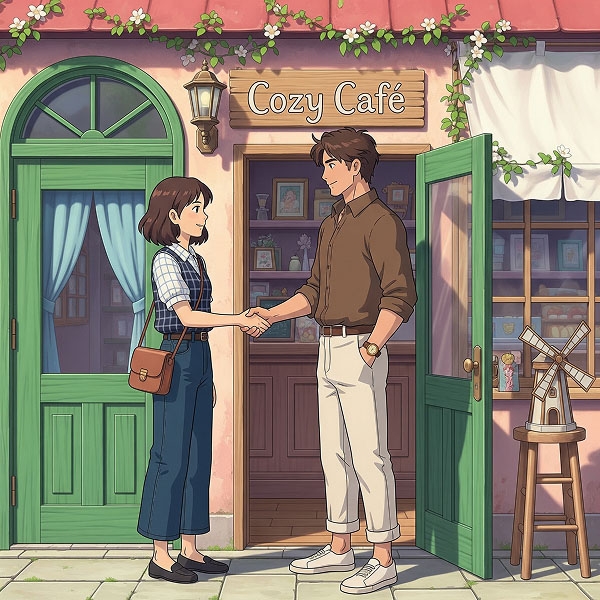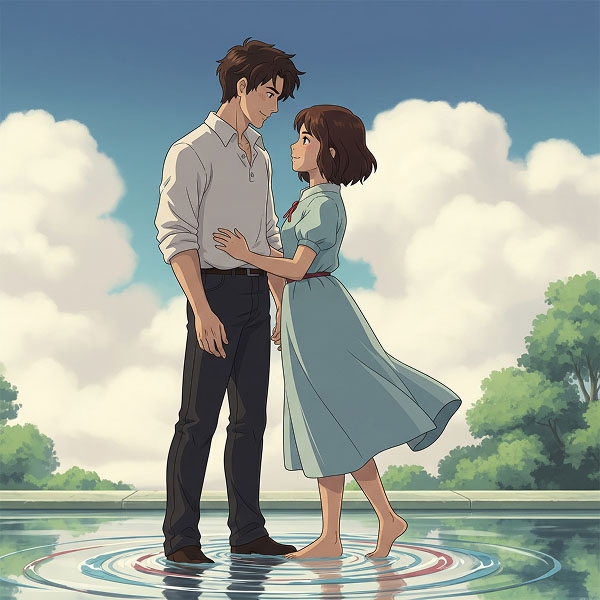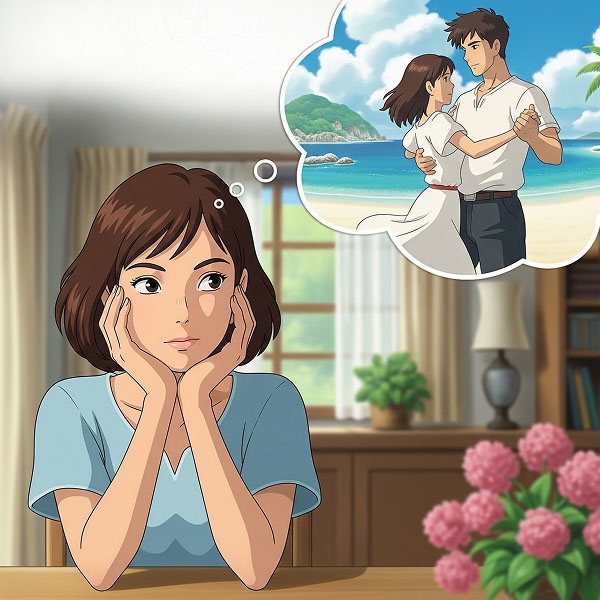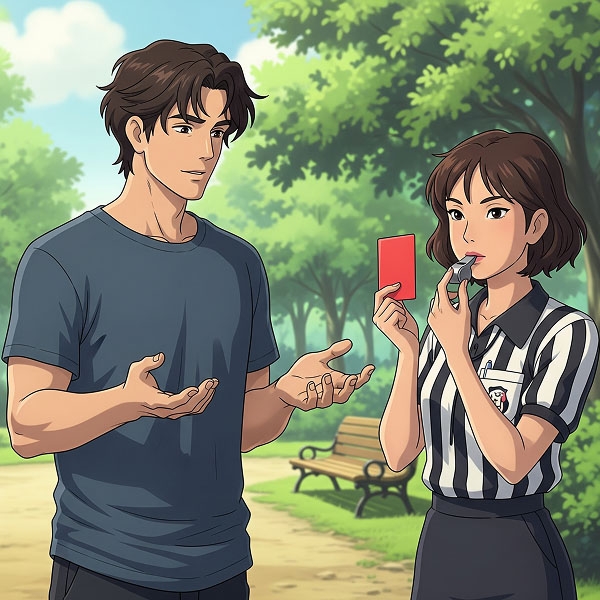Stage 3: 1 to 5 First Dates (Early Connection)
First dates are exciting. But they can also be confusing, nerve-wracking, and full of mixed signals. This stage is when the real exploration begins. You’re not just matching or texting anymore, you’re sitting across from someone, seeing how the energy feels face-to-face.
Early Connection, where early dating becomes more than just attraction. It’s about discovery, curiosity and emotional awareness.
Before diving into the intricacies of early connections, it's crucial to have a strong foundation. If you haven't already, make sure you've covered Stage 1: Self-Preparation and Stage 2: Discovery to set yourself up for success in this exciting phase. If you're looking for an overview of the entire process, you can explore The 5 Stages of Modern Dating.
In this guide, you’ll learn:
- What this stage is really about
- How to navigate the first 1–5 dates with confidence
- What questions to ask
- What signs to pay attention to
- And how to stay grounded while dating
Let’s break it all down, step-by-step.
What is Early Connection in Dating?

This is where you move from virtual or casual conversation into real-life connection. You’ve matched, talked a little and now you’re meeting up. You might go on one date or a few. The goal is not to decide if this is “The One”. The goal is to explore:
- How does it feel to be around this person?
- Do you share values, energy, humor, lifestyle?
- Do you feel emotionally safe and respected?
- Are you curious to know more or are you already drained?
This stage usually covers the first 1 to 5 dates and it can last a few days or a few weeks depending on how often you meet.
Why It is So Important
This stage often makes or breaks potential relationships. Why? Because most people make decisions too fast or get too emotionally invested too soon. What happens when you rush?
- You ignore red flags
- You mistake chemistry for compatibility
- You build a fantasy based on one good night
- You feel confused if they suddenly ghost or pull back
Exploration is about gathering information, not proving yourself. You're not auditioning. You're not selling yourself. You're observing and reflecting.
Key Goals: Exploration Stage

Let’s get super clear. Here’s what this stage is and isn’t about.
✅ Do:
- Stay curious
- Ask meaningful questions
- Observe how they make you feel
- Stay grounded and present
- Keep your emotional pace slow
🚫 Don't:
- Assume you’re already in a relationship
- Ignore warning signs
- Put someone on a pedestal
- Over-invest after one great night
- Try to control or rush the outcome
The key mindset?
“I’m here to see who this person really is—not who I hope they are.”
Common Challenges: Exploration Stage
Even with the best mindset, early dating can be tricky. Here are some common traps:
1. Chemistry Overload

The brain releases dopamine, serotonin, and oxytocin in early attraction. It can feel like a high. You may think, “I’m in love!” when it’s actually just brain chemicals firing off.
💡 Tip:
Let feelings settle. Don’t make big decisions or strong commitments in the first few dates. Excitement is natural but don’t confuse it for depth.
2. Ignoring Red Flags

Many people see red flags but dismiss them early on because “the date went well” or “they’re so attractive.” Examples of early red flags:
- Constantly interrupting or talking only about themselves
- Saying negative things about exes
- Vague answers about what they want
- Rude to servers or others
- Not respecting boundaries (emotional or physical)
💡 Tip:
Believe patterns, not promises. If someone shows you who they are, believe them.
3. Overthinking Everything

You replay the date in your head, wonder what they’re thinking, check your phone constantly and start imagining a whole future together.
💡 Tip:
Focus on reality, not fantasy. One good date means, one good date. That’s it. Stay grounded in what’s real, not what could be.
4. Fear of Rejection

You try to be “perfect” on the date (funny, chill, flirty). You don’t ask what you really want to know, because you're afraid of being "too much".
💡 Tip:
You’re not there to impress, you’re there to connect. If being real scares someone away, they’re not your person.
How to Navigate Dates 1–5 With Confidence

Here’s a breakdown of how to approach each of the first five dates intentionally.
Date 1: The Vibe Check
This is all about initial energy. Ask yourself:
- Do I feel safe and comfortable around this person?
- Can we hold a natural conversation?
- Are they respectful and present?
- Would I be interested in learning more?
💡 Tip: Keep it low pressure
Coffee, a walk or a casual drink. Don’t plan a long date, you can always extend it if it’s going well.
✅ Green Flags:
- They ask you questions, not just talk about themselves
- They’re kind to others
- They make you feel comfortable, not judged
Date 2: Curiosity & Light Depth
If you’re both interested, Date 2 is about peeling back a layer. Ask questions like:
- “What’s something that lights you up?”
- “What does a healthy relationship look like to you?”
- “How do you spend your free time?”
Watch for:
- How they talk about others (exes, coworkers)
- How they respond when you share a vulnerable thought
💡 Tip:
Don’t talk only about work or surface things. Go a little deeper without trauma-dumping.
Date 3: Alignment & Intentions
By the third date, you can start getting a feel for whether your values align. Ask:
- “What are you looking for in dating?”
- “What’s something important to you in a relationship?”
- “How do you handle stress or conflict?”
You’re not trying to figure out if you’ll get married, just if you're dating with similar goals. A lot of confusion happens when one person is casually dating and the other is looking for long-term.
Date 4–5: Observing Consistency
At this point, the person might start to feel familiar. You’re learning:
- Are they consistent in how they show up?
- Do their words match their actions?
- Are you more relaxed or more anxious around them?
Pay attention to:
- Do they follow through on what they say?
- Are they emotionally present or just physically there?
- Can you have fun and be yourself?
This is also a good time to reflect on:
“Do I feel more energized or drained—after seeing them?”
Questions to Ask Yourself After Each Date
After each date, take 10 minutes to journal or reflect on these:
- Did I feel safe, respected, and heard?
- Did we share any values or life goals?
- Was I able to be myself or did I feel like I was performing?
- Was I genuinely curious about them or just excited to be liked?
- Am I feeling grounded or anxious and overthinking?
You’re not judging yourself, you’re practicing emotional awareness.
How to Keep Emotional Boundaries: Early Dating

1. Don’t Plan Your Future With a Stranger
You don’t know them yet. Your job isn’t to figure out if you’d marry them, it’s to see if you want a fourth date.
2. Keep Your Routines
Don’t cancel your life to fit around someone new. Keep your plans, your hobbies, your alone time. Balance is sexy and healthy.
3. Avoid Intimacy Too Soon
Physical chemistry can confuse emotional clarity. There’s no “rule,” but slowing down helps you see more clearly.
ℹ️ Note:
Remember attraction is not compatibility.
Signs It’s Okay to Walk Away

Dating is a process of elimination not just addition. It’s okay to walk away if:
- They pressure you for intimacy or time
- You feel emotionally drained after seeing them
- They give mixed signals or ghost between dates
- You feel like you’re not being yourself around them
- Your values or lifestyles clearly don’t align
You don’t owe anyone “just one more chance”. You owe yourself peace and clarity.
🧭 Final Thoughts: First Dates Are Not a Test
You’re not trying to pass a test on a first date. You’re looking into a mirror. What does this person reflect back to you?
- Do you feel safe?
- Do you feel seen?
- Do you feel respected?
It is not about speed. It’s about clarity. It’s not about being chosen. It’s about choosing wisely. When you approach dating as an exploration, not a performance, you take your power back. You become the chooser, not the chaser. And you build your dating life on truth, not tension.
❓ Frequently Asked Questions
| 1. What is the "Early Connection" stage of dating? |
|---|
| It's the exploration phase, usually covering the first 1 to 5 dates, where you move from talking to real-life connections. |
| 2. What is the main goal of the Early Connection stage? |
|---|
| The main goal is to explore how it feels to be with the person and see if you share values, energy, humor and lifestyle. |
| 3. Why is the Early Connection stage important? |
|---|
| It helps prevent rushing decisions, mistaking strong feelings for true compatibility and ignoring warning signs. |
| 4. What are some common challenges in the Early Connection stage? |
|---|
| Challenges include being overwhelmed by strong feelings, overlooking red flags, overthinking and being afraid of rejection. |
| 5. What should you focus on during early dates? |
|---|
| Stay curious, ask meaningful questions, notice how the person makes you feel and take things slowly emotionally. |
| 6. How many dates does the Early Connection stage usually cover? |
|---|
| The Early Connection stage usually covers the first 1 to 5 dates. However, every dating journey is unique and this can vary for different people and situations. |
| 7. When should you consider ending an early dating connection? |
|---|
| You should consider ending it if you notice clear warning signs, feel uncomfortable or if the person doesn't align with your values and boundaries. |
Table of content
- Stage 3: 1 to 5 First Dates (Early Connection)
- What is Early Connection in Dating?
- Why It is So Important
- Key Goals: Exploration Stage
- Common Challenges: Exploration Stage
- How to Navigate Dates 1–5 With Confidence
- Questions to Ask Yourself After Each Date
- How to Keep Emotional Boundaries: Early Dating
- Signs It’s Okay to Walk Away
- 🧭 Final Thoughts: First Dates Are Not a Test
- ❓ Frequently Asked Questions
